Das Olympische Bildungsmagazin
The real costs of the Youth Olympic Games 2018 in Buenos Aires: 1,15 billion USD. At least.
- Jens Weinreich
- 18. Oktober 2019
- 03:05
- Ein Kommentar
by Ernesto Rodríguez †, Federico Darío Teijeiro, Pablo Abdón Torres Barthe
translated by Brenda Daniela Pisanu, edited by Jens Weinreich
Last November, with the Olympic Torch of Buenos Aires 2018 still warm, we conducted an investigation entitled The Million Club in which it was shown that, under the umbrella of the Youth Olympic Games, a group of 51 companies had done business and billed at least USD 1.000.000 each. Months later we expanded the search. Not only because new supporting business evidence related to the YOG appeared, but because the Buenos Aires administration headed by Horacio Rodríguez Larreta and Diego Santilli (Head of Government and Deputy Governor, respectively) continued to enable compensatory payments long after the activities ended.
The exhaustive search allows to expand from 51 to 65 companies that invoiced more than USD 1.000.000, thanks to the YOG 2018. This directly contradicts what was stated by the former Head of Government of the Autonomous City of Buenos Aires and current president of the Nation, Mauricio Macri, who promised that the expenses would be measured.
In fact, the campaign promise – presented on July 4th 2013 before the International Olympic Committee (IOC) by Mauricio Macri, at the moment Head of Government of the city, and Gerardo Werthein, then president of the Argentinean Olympic Committee (AOC) and member of the IOC since 2011 – was this:
- USD 104.690.000 for the YOCOG budget.
- USD 126.400.000 for Non-YOCOG budget (infrastructure including the olympic village).
- In total, USD 231.090.000.
See the report of IOC’s Evaluation Commission published in 2013:
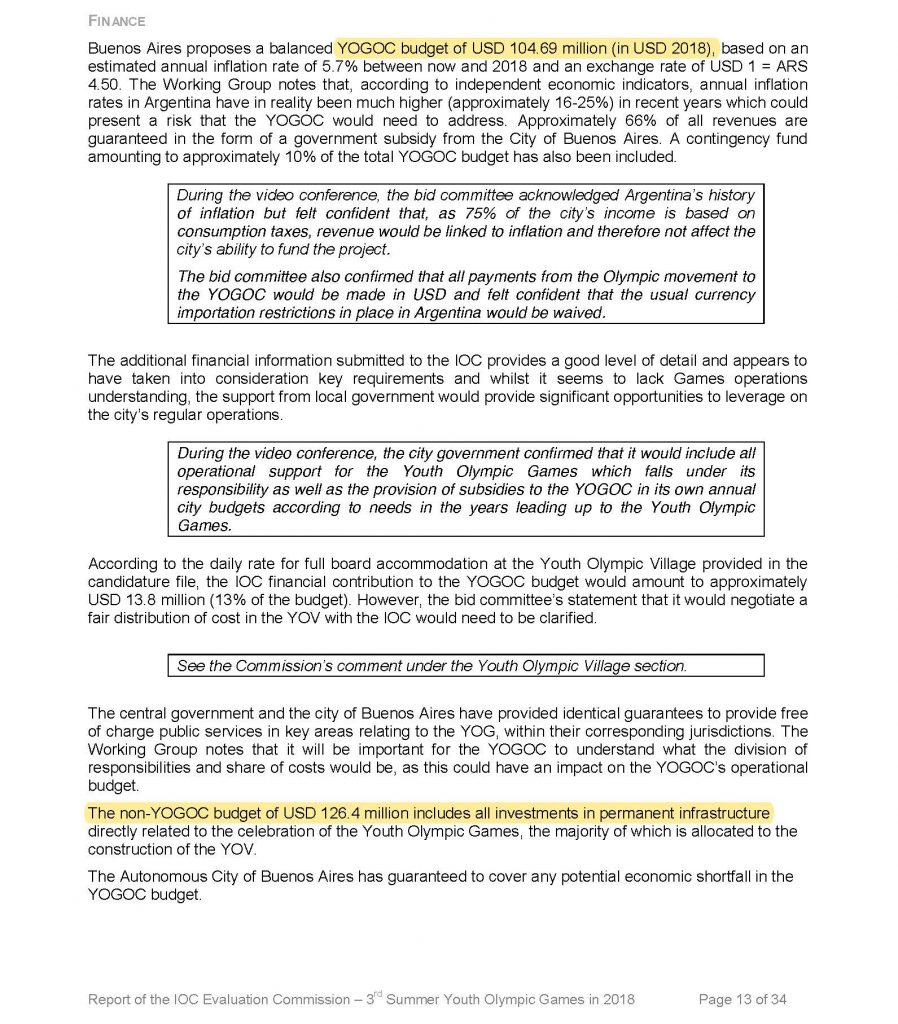
USD 231.090.000?
Really?
IOC president Thomas Bach claimed in October 2018, shortly before the opening party of the the Youth Olympic Games, the budget of USD 200mio „will be about 40 percent less“ than expected.
The organizers told him so, said Bach.
40 percent less than expected? 40 percent less than USD 231mio?
Over the months, and years, these 65 companies alone, The Million Club, pocketed the equivalent of USD 774.507.265.
Almost all public money.
Overall we can now prove real costs for YOG 2018 of more than USD 1.150.000.000.
USD 1,15billion.
And this will not be the last amount.
Since we have published our investigation three months ago at Ephecto Sport the overall costs increased again … and there will be more documents.
See the list of The Million Club:
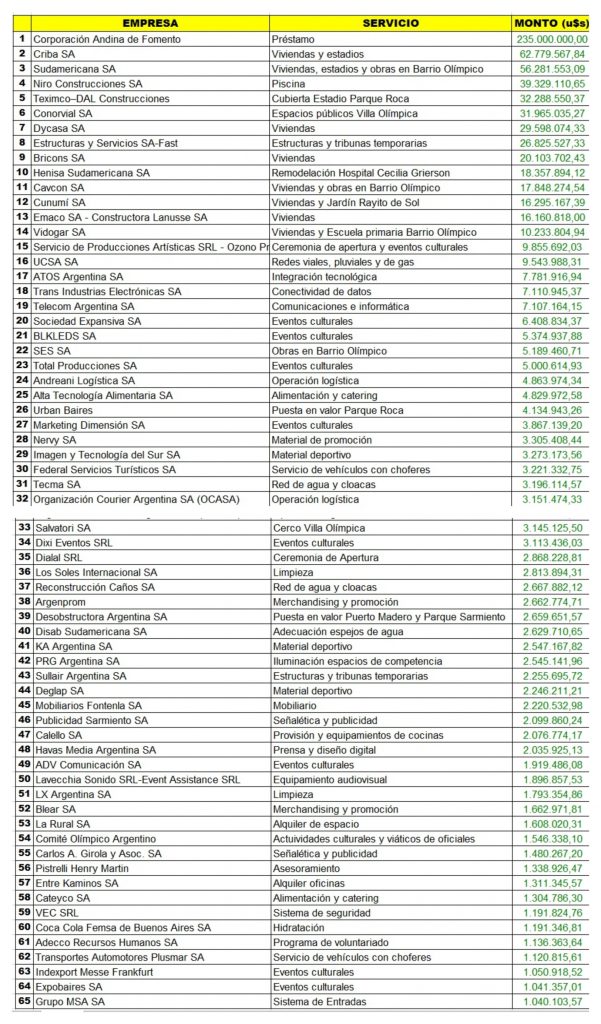
- The great majority of companies benefiting from the most important tenders are regular suppliers of the State, from the Autonomous City of Buenos Aires, as well as from the National Government.
- Two out of three of these 65 companies have direct links, for having directory members with family bonds, for having been contributors to Cambiemos (the party that has governed the Autonomous City of Buenos Aires for 12 years and the Nation for the last 4 years) in the electoral campaigns of 2015 and 2017 – or for having been involved in administrative irregularities by agreements signed with the administrations of the Autonomous City of Buenos Aires and the Nation.
- It becomes even more serious: we reviewed the operations of the companies and it was found that 42 of them benefited from contract surcharges.
The podium and the top ten
1 The gold medal in the podium is occupied by the Corporación Andina de Fomento (CAF). In 2016, the financial institution located in Caracas (Venezuela) authorized a loan for USD 160.000.000 that, technically, should be applied to the construction costs of the Olympic Village. The loan request not only meant increasing the indebtedness expected for 2016 by 20%, but the accumulated interest will mean that, when the total payment is completed, in 2026, the Autonomous City of Buenos Aires will have had to disburse USD 235.000.000.
2 The silver medal gone for Criba SA, with concessions for almost USD 63.000.000. The construction company is owned by Alberto and Eduardo Tarasido – two brothers who contributed USD 198.096 ($832.000 argentine pesos) to the presidential campaign of Mauricio Macri in 2015. The company exhibited its versatility by lifting two blocks of flats, the gymnastics stadium, two multipurpose stadiums and performing cleaning and maintenance of public spaces.
3 The podium of the big billers is completed by Sudamericana SA, with just over USD 56.000.000. Its president is Rudi Boggiano Leupolt, a broker of Chilean origin, who is part of the Urban Development Forum, whose function is to advise Horacio Rodríguez Larreta, Head of Government of the Autonomous City of Buenos Aires, in property policies. Towards the YOG Buenos Aires 2018, the company managed to keep the development of 120 housing units, distributed in four towers, the A1 and A2 sports halls and the new Olympic Park buildings, which were tendered in February 2019.
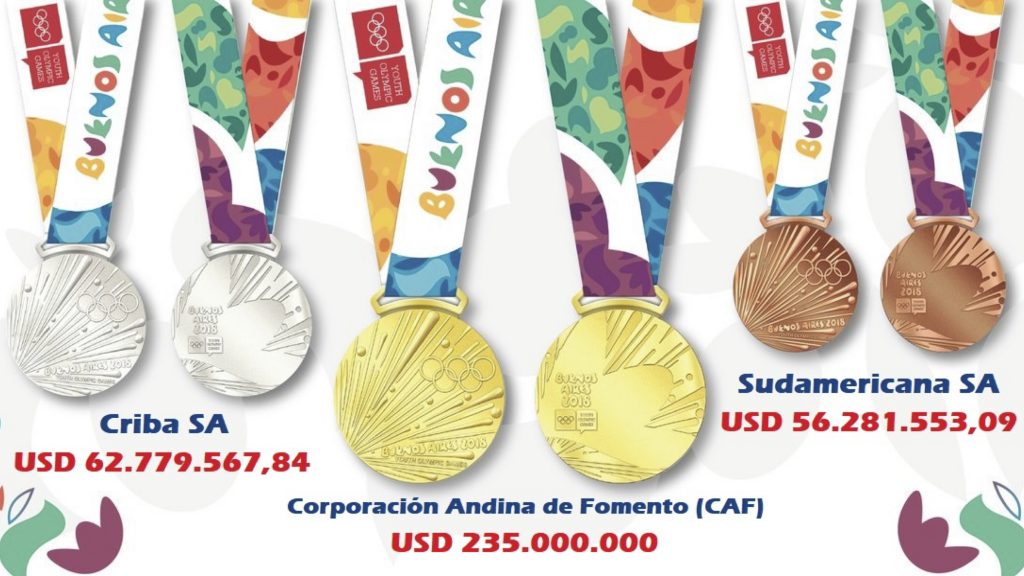
4 The fourth place on the list is for Niro Construcciones SA, owned by Lucio Niro, one of the main lobbyists of the construction and politics of our country, who received almost USD 40.000.000 for taking over the construction of the aquatic complex. His lack of expertise in the subject made him outsource Myrtha Pools, an Italian company whose local representative, at the time of winning the tender (March 2017), was Orlando Moccagatta, Undersecretary of Sports of the Nation; who is prosecuted by Judge Ariel Lijo for poor performance of the civil service. The tender for the stadium that housed the Olympic pool was the second highest: USD 31.500.000.
5 Next, Teximco–DAL Construcciones appears. The company was responsible for setting the roof to the Mary Terán de Weiss stadium. With Marcelo Roca in charge, Teximco is a company that knew how to combine business with both the management of the PRO (Cambiemos), and with Kirchnerism (Frente para la Victoria); actual and past goverments. The work at the Parque Roca, which lasted more than five years and that due to miscalculation, does not meet the technical expectations and cost the city a little more than USD 32.000.000. The fact: although the Autonomous City of Buenos Aires presented it as one of the venues for competitions, it was only used as a training area for martial arts and as the scene of a massive farewell barbecue for volunteers.
6 Conorvial SA is placed very close to Teximco–DAL Construcciones with almost USD 32.000.000. The joint venture took over two pavilions and the public spaces of the Olympic Village. The most important, for USD 21.000.000, was awarded to them despite not being the most economical and having exceeded the official budget by 19%. Its vice president, Ricardo Lopez Casanegra, also supported financially Mauricio Macri in his 2015 presidential campaign (a fact that brought to light the newspaper Tiempo Argentino and us).
7 Just a few thousand dollars below of the USD 30.000.000 was Dycasa SA. The company won two tenders for six apartment towers. This construction company, of spanish origin, gave the national government its former manager Pablo Rafael Aragone, whom president Mauricio Macri appointed vice president of the Regulatory Body of the National Airport System (RGNAS) in 2016. Aragone held that position until May 2018. A couple of months later, his “former company” opened 244 homes, divided into six towers. The company was denounced in 2014 by the former head of the Federal Public Revenue Administration (AFIP), Ricardo Echegaray, under the presumption of having issued apocryphal invoices.
8 The following is the brazilian company Fast Engenharia e Montagens SA. The company, owned by Antonio Domingos Fasolari, made a temporary alliance with Estructuras y Servicios SA to be able to do business in Argentina. Fasolari entity accumulates in Brazil almost a hundred sentences for breaches of contract; some of them linked to the 2007 Pan American Games, the FIFA World Cup Brazil 2014 and the Olympic Games in Rio de Janeiro 2016. The bet resulted in the Río de Janeiro citizens – who arrived with scandals after their participation in the Olympic Games in Rio de Janeiro 2016 – earning almost USD 27.000.000.
The top ten closes with two other construction companies closely linked to the power of Cambiemos, the actual national and city goverment. Bricons SA, whose owner is Mario Ángel Raspagliesi, who contributed $1.000.000 argentine pesos in personal and corporate name to the campaign of president Mauricio Macri in 2015. That same year he was left with a housing contract that, after three budget updates made in the next 30 months, allowed him to receive as payment a little more than USD 20.000.000. Henisa Sudamericana SA, an Argentine-Brazilian company, also made good business. It was in charge of the remodeling of the Hospital Cecilia Grierson, a work which, as stated in Article N°18 of the City Law N°5.704, should be completed at the time of opening the YOG Buenos Aires 2018. Not only did it not happen, but also, the work suffered a great collapse a few months ago.
The database
- To carry out this research, almost 2.250 contracting processes were analyzed, both directly, as tenders and other debt agreements, made by the different areas of the government of the Autonomous City of Buenos Aires related to the realization of the YOG Buenos Aires 2018.
- In the list of stipends there were 143 agreements that we consider the ones with the highest base value, with base price of USD 100.000.
- The follow-up of these allowed us to discover that in 80 cases more public funds were spent than those initially provided for in the technical provisions.
- This means that 56% of large purchases for the YOG Buenos Aires 2018 were surcharged.
At the top of the podium is the investment for the cover of the Mary Terán de Weiss Stadium. The experts had estimated, on July 4th 2013 – the day of the IOC decision on YOG 2018 – that USD 17.500.000 ($95.043.769 Argentine pesos) were to be paid for roofing the stadium court and solve a structural flaw in its original design. The tender was granted to Teximco–DAL Construcciones for an amount that exceeded the budget by 9%. Between the Office of the Cabinet of Ministers and the Ministry of Urban Development of the Autonomous City of Buenos Aires, they issued six additional payments, the last being in January 2019. Following these supplementary increases, the final number was the equivalent of $412.620.904,51 argentine pesos. This means that there was a surcharge of 334%.
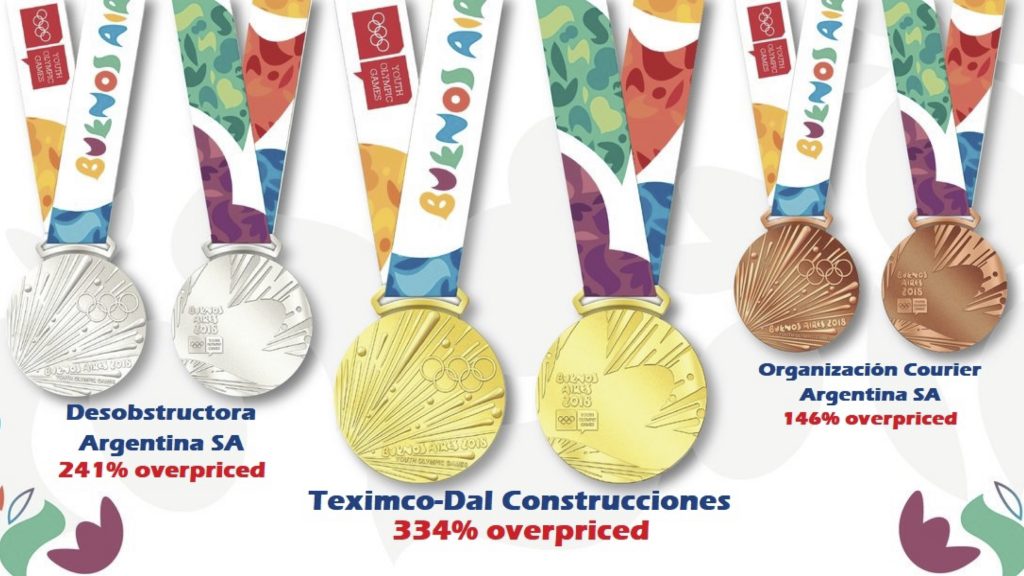
The second place is occupied by Desobstructora Argentina SA (DASA), which won an agreement for cleaning the dikes 2 and 3 of Madero Harbor, where nautical activities were performed. The Autonomous City of Buenos Aires evaluated and determined a budget of USD 299.600 ($7.594.873,92 argentine pesos). However, the company led by Pablo Elias – who was both associated to the management of Daniel Scioli as to the one of Mauricio Macri – won the tender on May 29th, 2018, with an offer that initially exceeded the budget by 55% ($11.777.803 argentine pesos). In an incomprehensible way, the administration of the Autonomous City of Buenos Aires approved an additional payment. The final amount paid for the work and for the use of dyes (to color the water and make it look clean) was USD 844.060 ($25.893.423 argentine pesos), 241% more than what was initially budgeted, with an extension of payment included.
The other contract awarded by DASA to value the Sarmiento Park, one of the four locations, also had irregularities in the papers. The place was closed on March 28th, 2018. The Undersecretary of Works of the Autonomous City of Buenos Aires budgeted the work at USD 1.026.923 ($21.051.924 argentine pesos). Although the figure that was initially accepted by the company was $ 18.303.476,78 (USD 888.518), three additional payments in the subsequent nine months raised the amount to a total of USD 1.815.592.
Organization Courier Argentina SA (OCASA) was placed in the third step and, on April 16th, 2018, it was awarded a logistics service operation, storage and elements control. The Autonomous City of Buenos Aires evaluated the service at USD 1.840.497 ($37.730.196 argentine pesos). The company, which was then headed by Patricio Farcuh had a price premium of $1.851.408 argentine pesos. After the adjudication of the tender they began a series of successive payments that raised the cost to 146% more than what it was initially budgeted.
For the end, an honorable mention. The Autonomous City of Buenos Aires enabled on the official site BuenosAires.gob.ar, a supposed transparency portal entitled A quién se compró to record the tenders, purchases, contracts, etc. of the YOG 2018. The last update of the site was in April 2018. That is five months before the YOG Buenos Aires 2018 began. In the official data portal, the company that awarded the most tenders, purchases, contracts, etc. was Pola 1281 SRL, with 107 won processes. The company specializes in catering and banquets. In addition, the company has a long relationship with power.
Paradoxically, on the Buenos Aires Compras site, where there should be a record of the tenders, purchases, contracts, etc. made by the various areas of the Autonomous City of Buenos Aires, there is nothing related to what we have investigated and published.
The tenders, purchases, contracting, etc. to companies linked to power were only published in the Official Gazette of the Autonomous City of Buenos Aires. Moreover, any tender, purchase, contract, etc. that exceeded $100.000.000 argentine pesos, except for the production of the opening ceremony of the YOG Buenos Aires 2018, was excluded from the transparency portal. In addition, in no budget executed by the Autonomous City of Buenos Aires, from 2014 to 2019, the numbers of the expenses coincides with the sum of the tenders, contracts and expenses that were being done throughout the year.
Family business
Among the companies there are also direct relatives of officials of the National Government. One of the cases is that of Emaco SA. The company belongs to Federico Bensadón and Alberto Gutiérrez; but in its directory Fernando Polledo Olivera appears, who is Carmen Polledo’s husband, a national deputy for Cambiemos, the National Government party. The company was left with one of the tenders to build three towers, which contain 147 housing units. But the intimate bond is not their only bond. Bensadón and Gutiérrez also carry out Telemetrix SA, another company that was awarded the works of the YOG Buenos Aires 2018. In addition, since 1988, Telemetrix SA has the granting of Costa Salguero; it pays a very low fee for this. Among other uses, the place was chosen as a bunker of the National Government for its electoral and campaign acts.
Another benefited company is Cateyco SA, the provider of the caterings for the bunkers of Cambiemos, the national government party. For the YOG 2018 it received contracts for USD 1.200.000. The company is part of the Association of Events of the Argentine Republic (AOFREP), where Barbara Diez, wife of the Head of Government of the Autonomous City of Buenos Aires, Horacio Rodríguez Larreta, is part of the directory.
One of the most paradigmatic cases of conflict of family interests is the cleaning company Los Soles International SA, owned by the family Costoya. Pedro Costoya, owner of the company, was the traditional bridge partner of Franco Macri, father of president Mauricio Macri. In addition, his daughter Victoria is the wife of the Minister of the Interior of the Nation, Rogelio Frigerio, and the director of Financing and International Cooperation of the Ministry of Social Development of the Nation. Victoria had to relinquish her position, after the president of the Nation prohibited by decree the permanence of direct relatives of ministers in the structure of the public administration.
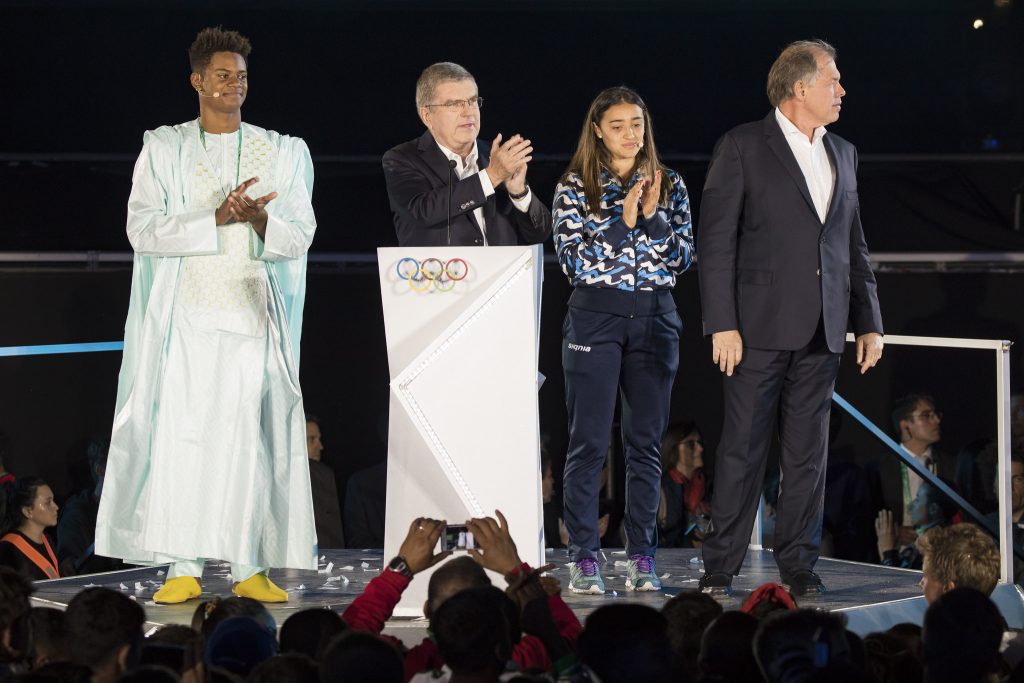
Werthein’s family business
Finally, among the most important and paradigmatic cases, is the case of Telecom Argentina SA. The telecommunications company earned USD 6.500.000 for providing services in the YOG Buenos Aires 2018.
Gerardo Werthein, IOC member since 2011 and president of the Argentinean Olympic Committee (AOC) between 2015 and 2017, was the owner of the company between 2005 and 2017. For example, the contracting process for the telephone and Internet provision service for the YOG Buenos Aires 2018 was started on June 26th, 2017: only seven days before the sale of the share parcel to the Fintech company group was announced.
Gerardo Werthein is one of the fastest-climbing men in the International Olympic Committee (IOC) as regards job positions. 20 years ago, he was simply a local businessman, who as head of the well-known Group W, who owned the Argentine Mercantile Bank, the privatized Saving Account, the Finca Flichman Winery and the yerba producer Cachamai. In addition, Werthein has agricultural companies in the Province of La Pampa and in the western region of the Province of Buenos Aires.
In 1999, Gerry, as he is known in his intimate environment, this medical veterinarian decided to immerse himself in the sport that fascinated him, equestrian. A sport in which, despite having horses of international level (for example: Capricho Calwaro was an Olympic finalist in Sydney 2000), he had never managed to overcome the intermediate level. In November 1999, Werthein premiered his Haras El Capricho in Capilla del Señor, Exaltación de la Cruz, Province of Buenos Aires, with an international competition that would become the most important in the country. In addition, to win favors from local politicians, Werthein performed numerous free shows in which he presented important local artists such as: Soledad, Chaqueño Palavecino, Fito Páez and the Fabulous Cadillacs; among others.
Extraordinarily, Werthein was climbing positions in the local sports leadership until he reached the presidency of the Argentinean Equestrian Federation in 2004. A year later, in 2005, Werthein was a leading actor in the election of Julio Cassanello, personal friend of the former president of the Argentinean Football Association (AFA), Julio Humberto Grondona †, to access the presidency of the Argentinean Olympic Committee (AOC) in 2009.
(Jens Weinreich: Grondona would have been the criminal with the biggest amount of stolen money – much more than USD 100.000.000 – in the FIFA trial in Brooklyn, but he died in 2014, one year before the first indictment was published. See: Die märchenhaften Reichtümer des FIFA-Finanzchefs Don Julio Grondona: woher kommen mehr als 100 Millionen Dollar auf seinen Auslandskonten?)
Before becoming president of the Argentinean Olympic Committee (AOC), Werthein showed what his management of the Argentinean delegation that was going to the Beijing Olympics 2008 was going to be. With substantial support of accredited journalists, especially those of the groups that conformed C5N and Infobae made up those who enjoyed the technical facilities that enabled the specialists of Telecom Argentina SA –the then new acquisition of the family group – taken to the Chinese capital to solve any technical complication . The organization of the national delegation was the best in years, by far. As a souvenir of his asian excursion, Werthein brought the necessary contacts to begin the conversion of Standard Bank in the local branch of the Industrial & Commercial Bank of China (ICBC) in addition to technical assistance agreements and laying of fiber optic networks for the Chinese public network.
Expensive service of Vero Communications
After generating the lobby enough so as to approve the law of creation of the ENARD by the end of 2009, the entity responsible for financing the high-performance athletes, Werthein decided that it was time to make the big leap and go for the presidency of AOC. For that reason, Werthein hired the services of Mike Lee †, an englishman who, under the umbrella of his communications company Vero Communications, knew perfectly well who to talk to get the votes, and favors, of the hundred voters.
In 2010, Buenos Aires was competing with Kuala Lumpur at the 122nd IOC session, held in Vancouver, Canada, for the hosting right of IOC’s 125th in 2013. That would be a fundamental meeting for the Olympic movement, because of the presidential race and the bid for the Olympic Games of 2020. (See the extensive coverage on the IOC decisions 2013 in this blog.)
The Autonomous City of Buenos Aires won against Kuala Lumpur and Werthein knew he was on solid ground. It was the moment. The first step was taken completely in July of the following year at 123rd IOC session held in Durban, South Africa; when the seduction of Lee and his troops allowed the Argentinean candidate to get 68 votes in favor, 12 against and two abstentions to join the Olympic family.
Gerardo Werthein became an IOC member.
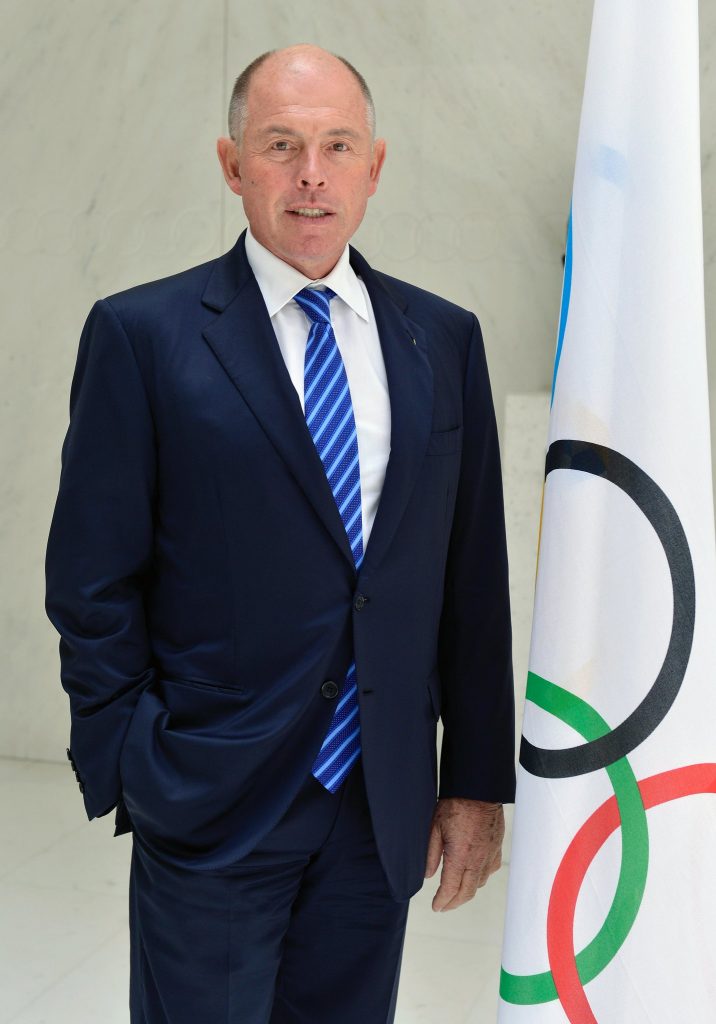
That success excited Werthein, who quickly found a new goal: that the City of Buenos Aires become an Olympic host. Together with the ENARD staff, which began to function effectively in the second quarter of 2010, he strengthened its political contacts with Kirchnerism; despite having had some short circuits with former president Nestor Kirchner. Then, he began to weave alliances with the current government of the country’s capital, to guarantee the favors of the Autonomous City of Buenos Aires. Borders outside, Werthein again secured the services of Vero Communications, according to our information for a seven digit amount of money.
Werthein’s plan took two years and began at the 2012 London Olympics, another of the triumphant ventures that Lee used to display to convince potential clients. Werthein was very close to the infamous Brazilian Carlos Nuzman, now charged for corruption during Rio de Janeiro’s 2016 olympic bidding campaign, which was also supported by Mike Lee and Vero.
Whenever he had the chance, Werthein spoke of the South American or Latin American block, according to the convenience of his audience.
The infamous Kuwaiti IOC sheikh Ahmad Al-Fahad Al-Sabah (co-conspirator #2 in a FIFA indictment, meanwhile charged for forgery at the Geneva criminal court, self suspended from IOC and ANOC but still OCA president) became another ally of Gerry Werthein. Despite the formation and religious differences they shared the passion for horses and the ambition for power.
With those powerful allies, Werthein felt confident in winning the YOG 2018 election on July 4th 2013 at IOC’s extraordinary session in Lausanne. And so it happened: Buenos Aires won against Glasgow and Medellin.
Two months later, at the IOC session in Buenos Aires Hilton hotel at Puerto Madero, Wertheim was the host for his IOC colleagues – based on a payment of just over USD 1.000.000 by the then Ministry of Economic Development of the Autonomous City of Buenos Aires.
The new IOC president Bach loved the way in which the Olympic Family was received by the then head of government of the Autonomous City of Buenos Aires, Mauricio Macri, who in anticipation to the fact that the city would hold the YOG Buenos Aires 2018, did not hesitate to make its means available and even led to an opening event at the Colón theater.
Bach was giving Werthein increasing power within the IOC structures. The kind of payment that Bach required for such a promotion was that Werthein became one of his aggressive vocal supporters on sharp issues. As Werthein did, for example, at the IOC session a few days before the opening of the Olympic Games 2016, when he vehemently defended the IOC policy in the Russian doping scandal.
In September 2017, Carlos Nuzman, one of the pillars of the election of the Autonomous City of Buenos Aires 2018, was arrested in his house in Leblon and charged for corruption. Again it was Werthein who went out to officiate as a Bach spokesperson; separating the IOC from, now, undesirable honorary member fallen into misfortune: „Brazil did things in the wrong way and Argentina is doing them well“, Werthein said in an interview.
Al-Sabah would be the other strategic partner of Werthein, who also paid for his sins. In March 2018, Werthein and Horacio Rodríguez Larreta, Head of Government of the Autonomous City of Buenos Aires, received Al-Sabah with luxuries and took him on a tour of the Olympic Village.
The reason for Bach’s great confidence to Werthein is correlated in the mission that the Argentinean fulfills in the IOC commissions: he is in charge of the Digital and Technology Commission. In addition, he is one of the members of the council that negotiates television and network rights.
The broken promise: 45 times more than YOG bidders claimed in 2013
The question, which floats in the wind, is the same that many tried and failed to answer or gave figures that do not fit reality. “USD 100.000.000 plus the Olympic Village”, replied Leandro Larrosa in 2012. Larrosa was then the right-hand man of Gerardo Werthein and would become, finally, head of the Organizing Committee (BAYOGOC).
„The Youth Olympic Games will cost USD 104.690.000. And the expenses related to infrastructure, other USD 126.400.000 (a total of USD 231.090.000)”, promised the official candidacy document presented to the International Olympic Committee (IOC) Mauricio Macri, at that time Head of Government of the Autonomous City of Buenos Aires, and Werthein, President of the Argentinean Olympic Committee (AOC).
„It depends on the area”, was the vague answer that Horacio Rodriguez Larreta, current Head of Government of the Autonomous City of Buenos Aires, gave in an exclusive dialogue on october 3rd, 2018; only 72 hours before the event began. The Games cost 40% less than expected, said IOC president Thomas Bach three days later.
However, his ally Gerardo Werthein knew already that the real costs had escalated to USD 650.000.000.
In July 2019, Juan Manuel Areco, head of the Special Projects Unit for the Youth Olympic Games (SPUYOG), a division that depends directly on Diego Santilli, the Deputy Head of the Government of the Autonomous City of Buenos Aires, said: „the budget assigned was of USD 200.000.000 over five years, as regards the Games”. Areco hopes to be able to formally close its office, which was generated thanks to Decree 66/14 of february 14th, 2014 „in a week or two“, to avoid extending expenses and obligations.
All attempts were not enough to determine, reliably, how much the expense account of the YOG Buenos Aires 2018 was. Officials consulted in on and 0ff the record, repeated again and again: „It’s all in the budget. Search the web and there you will find the figures.“
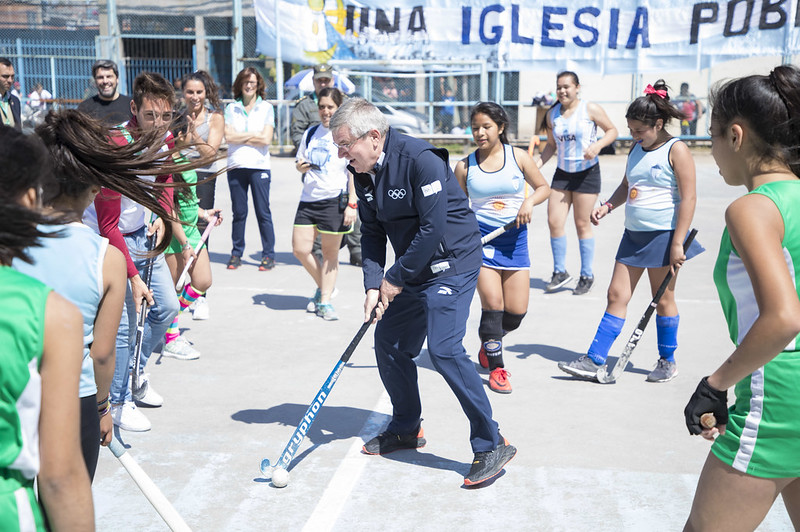
Or there are multiple errors on the web or there were expenses published in official documents that were not collected.
- According to official balances, the Autonomous City of Buenos Aires paid $10.530.721,93 argentine pesos for expenses related to the YOG in 2014.
- In 2015, $150.833.480,70.
- The figure amounted to $1.275.950.981 in 2016.
- In 2017, it was $4.581.661.236.
- And in 2018 it was $4.967.003.935.
- For 2019, it has an estimated expense of $87.370.977.00, of which 65% was spent in the first quarter.
- According to the average values of each year, the Autonomous City of Buenos Aires recorded an expense of USD 643.000.000, meaning that it does not recognize 41% of what it actually paid for.
In 2017, this investigation began to try to find an answer, as close as possible, to the question: How much was spent?
It wasn’t easy. The current management of the Autonomous City of Buenos Aires has generated multiple gadgets to make the administration of the YOG invisible.
In addition to what has been generated from UPEJOL, expenses have been outsourced by a network of ministries and secretariats to entangle monitoring. Many of the operations appear in the Official Gazette of the Autonomous City of Buenos Aires, but not in the transparency portal „Buenos Aires Compras“ or the one used during Buenos Aires 2018, which has no updates since April 2018.
And, in extreme cases, they have been made under the cover of reserved expenses, impossible to track them down.
Seven families in a „sustainable“ Olympic Village
The vast majority of what was dispensed comes from public funds. Only a few sponsorship agreements have been signed. The IOC contributed USD 64.000.000 ($2.777.600.000 argentine pesos at current exchange rates) according to the Annual Report 2018 in which the Werthein Games were praised as unique and sustainable.
These were truly the Youth Olympic Games of a new era … more urban, more female and more inclusive than any edition of any Olympic Games before.
Thomas Bach, IOC Annual Report 2018
In addition to corruption, overpricing, secret deals, excessive public spending and other aspects: In the Olympic Village, the centerpiece of YOG 2018 legacy, live only seven families.
Seven.
Ok, meanwhile 1.040 families are on the waiting list.
Other parts of the legacy:
On contrary to the promises new venues were built are now great white elephants, which were planned to be proposed as a new high-performance sports center.
Also, the forgetfulness of the athletes who were champions and some who retired with only 18 years. Argentinean athletes were not paid the promised prize and only one in six receives a monthly scholarship of USD 130 ($8.000 argentine pesos).
In addition, irregularities in the selection of suppliers, purchase, acquisition and distribution of sports supplies. Half of the contracts were for direct purchase and with companies without experience in sports technology.
The Autonomous City of Buenos Aires paid USD 10.000.000 for various sports supplies, which after the YOG Buenos Aires 2018, should be transferred to the different national federations. One year after the event, only two federations have the material and 30 continue to wait.
Also, 1.072 people were hired, giving priority to blood ties and/or political ideally; to a cost exceeding USD 20.000.000. The most resonant case we published, and that many tried to hide (and in a way, succeeded), was that of Sara Werthein, announcer and daughter of Gerardo Werthein, who was included in the structure of the YOG Buenos Aires 2018 as Ceremony Coordinator of the Directorate of the Cultural and Educational Program.
Finally, the business behind the budget artistic shows that a much higher amount than USD 57.000.000 was spent for the opening ceremony. The vast majority of the companies that got the contracts are linked to the current government.
- After almost two and a half years of crossing information we could publish in July 2019 that for the YOG Buenos Aires 2018 USD 1.090.958.779,08 were spent.
- Meanwhile, three months after our first publications, the amount increased to roughly USD 1.150.000.000.
Is this the final number of the expense?
No. For two reasons.
The first, there is a gray area. The second, the sum will continue to grow, because the administration of the Autonomous City of Buenos Aires continues to pay updates to the signed contracts.
If we consider the current exchange rate by the National Bank, this amount would give a total of Argentine $47.347.611.012 now.
In other words: more than 45 times what was promised by Macri and Werthein six years ago in Lausanne.
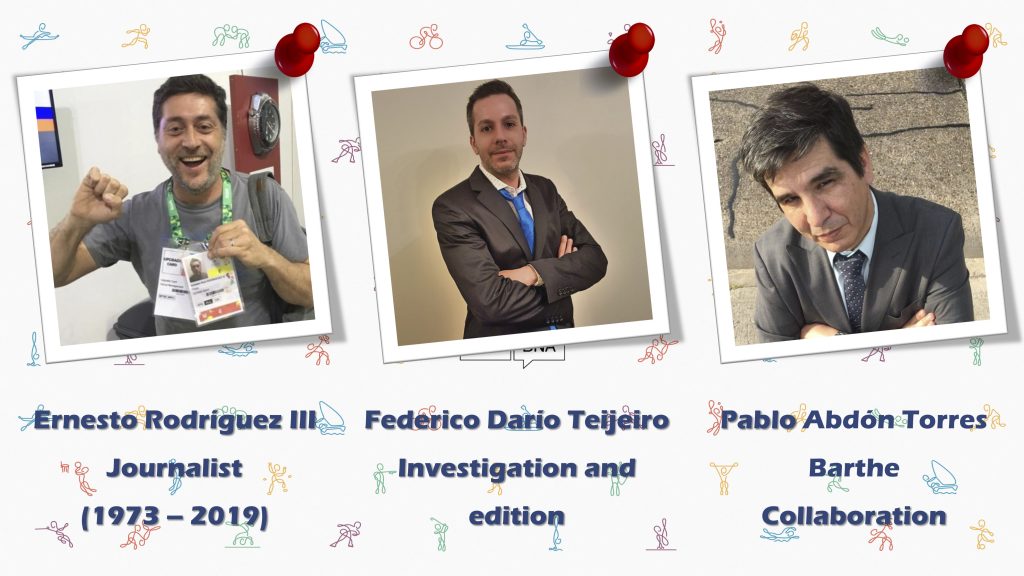
Ernesto Rodriguez III died on September 12, 2019 on a heart attack at the age of 46. His friend and colleague Federico Dario Teijeiro (@federicodt) has presented some results of the ongoing investigation this week at the Play the Game conference in Colorado Springs. This is an edited short version of Federico’s presentation. The investigation was published in July 2019 in nine parts at Ephecto Sport in Spanish – parts of it were published in several South American news outlets. To make a long story short: Argentinian media outlets were not so much interested in the stunning investigation. Ernesto, Federico and Pablo have contacted BAYOGOC and other institutions involved in the YOG 2018 and delivered a long list of questions. They have not gotten serious answers, in many cases not even responses.
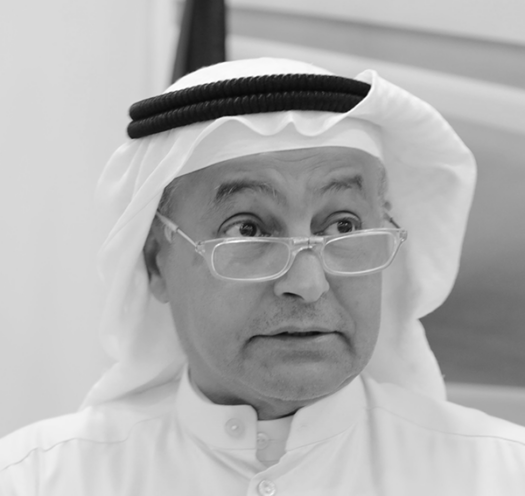

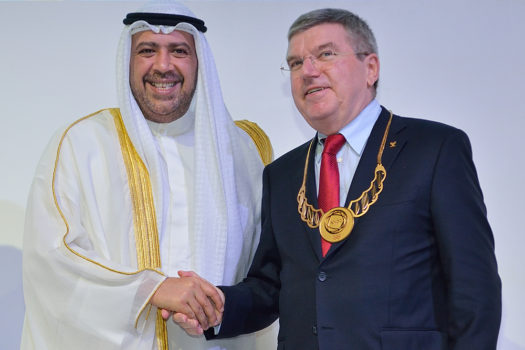
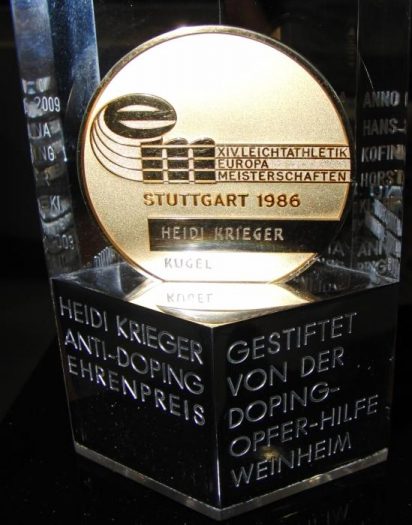
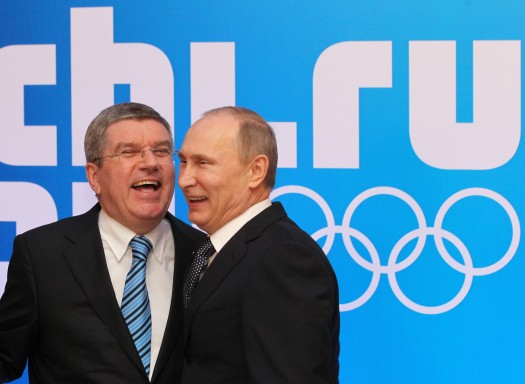
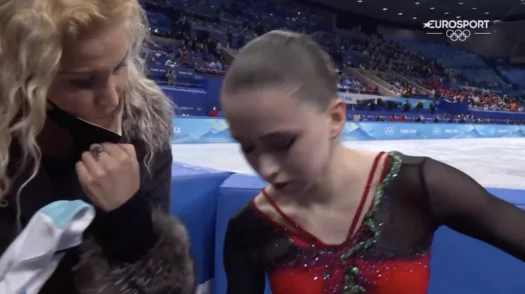
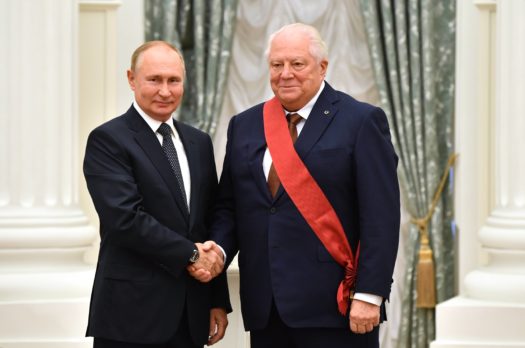
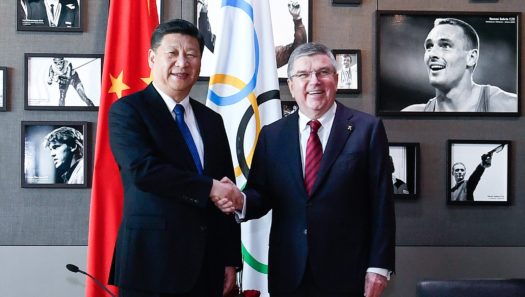
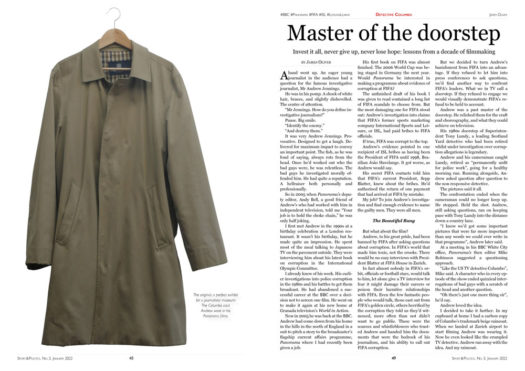
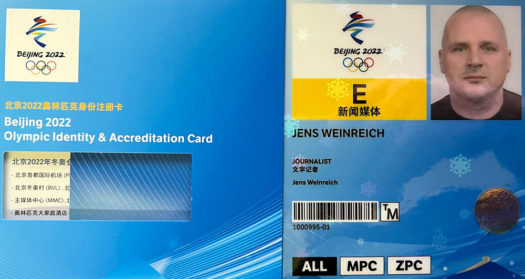
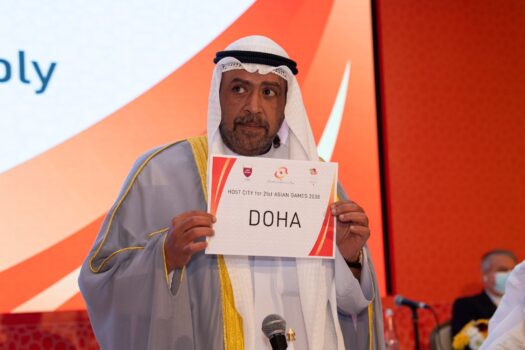
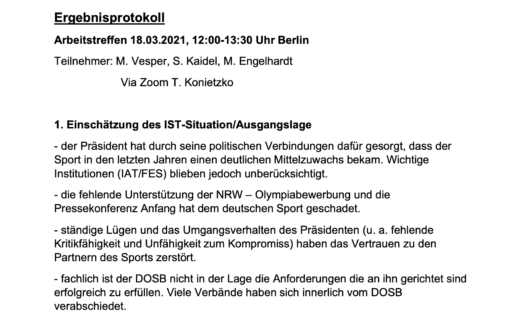
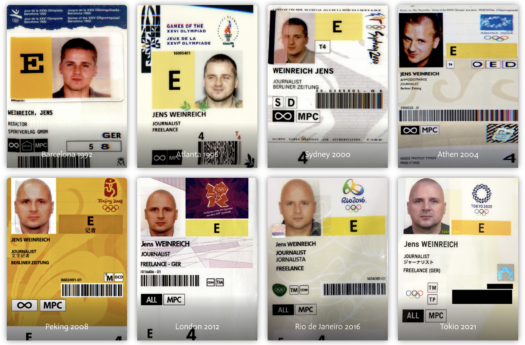
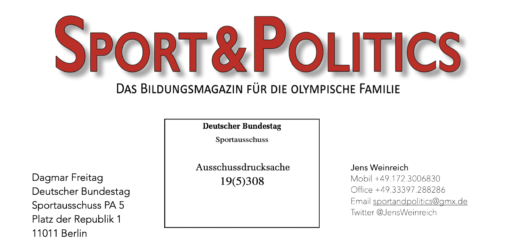
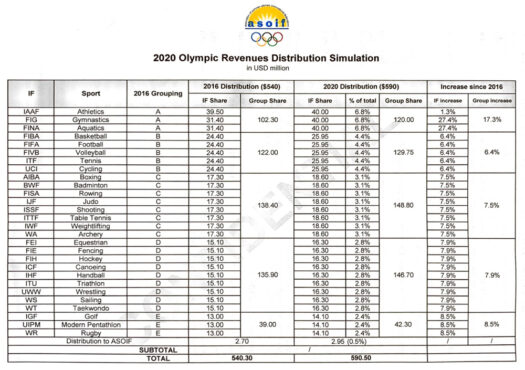
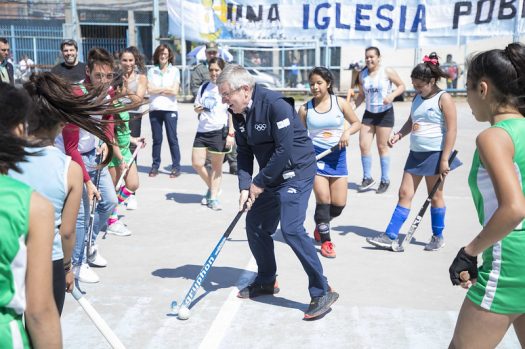
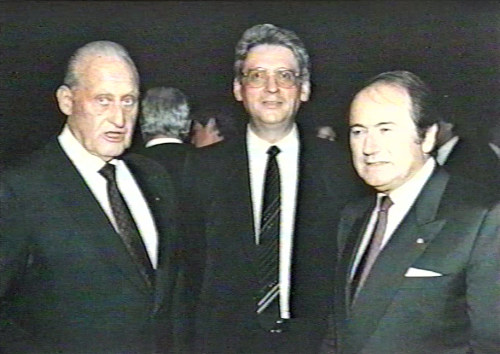
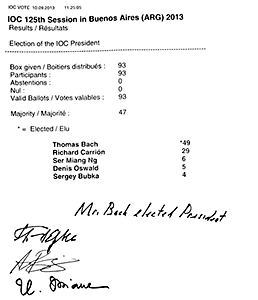
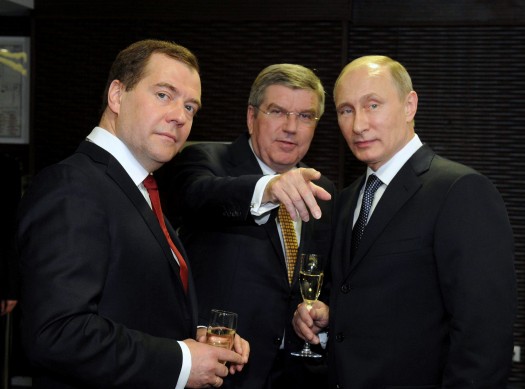
Pingback: Personenkult im IOC: Ministrant Bach in der Tradition des Supernumerariers Samaranch – SPORT & POLITICS